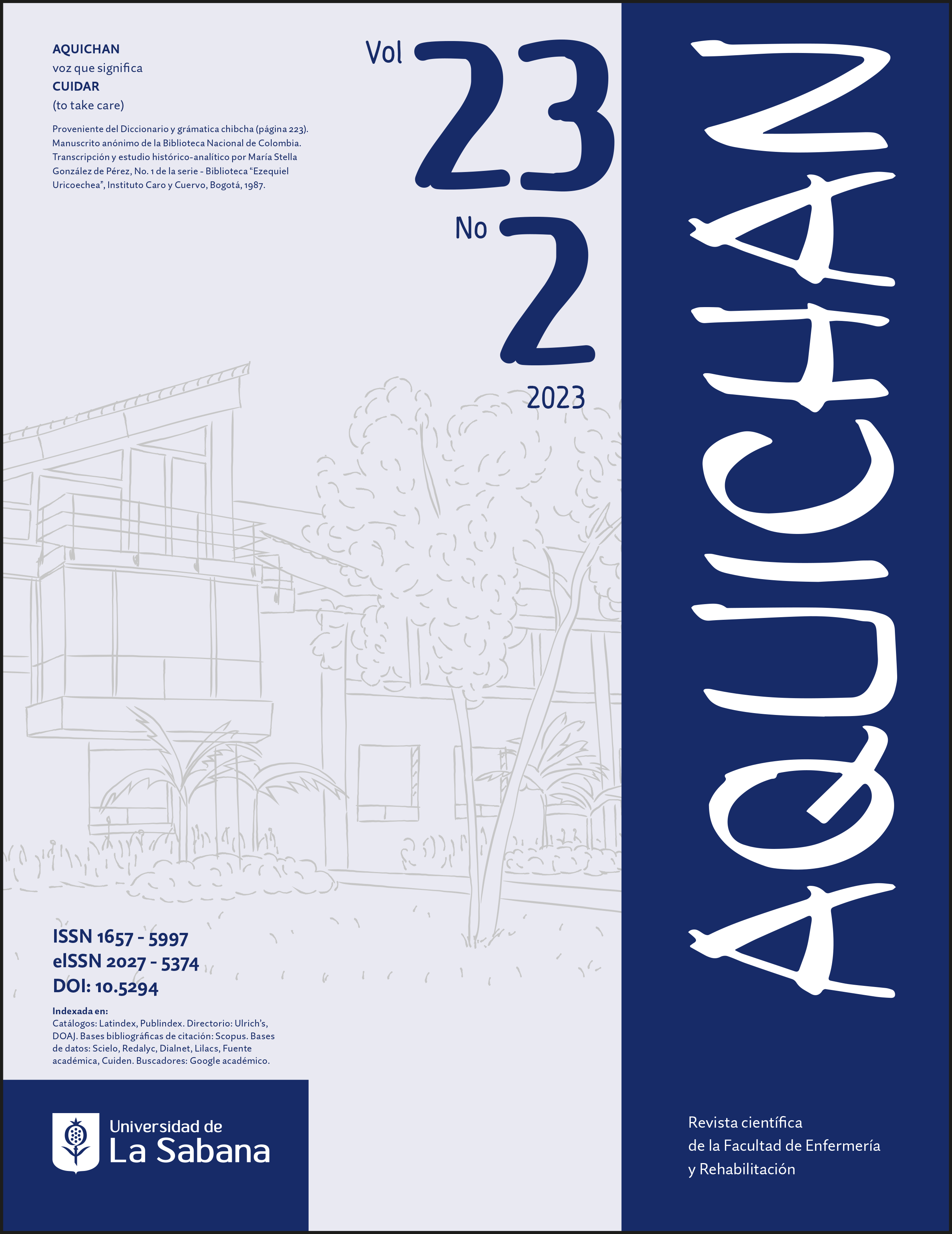Technology and Care Load in Future Hospitals
DOI:
https://doi.org/10.5294/aqui.2023.23.2.1Keywords:
Health care, health science, technology and innovation management, hospital administration, personal administration, caretaker loadAbstract
Recent technological progress is generating important disruptions, and healthcare is no stranger to them. Nursing is subject to technology change disruptions. It is important to reflect on the advantages and disadvantages technology brings with it and the changes it generates in care processes. If technology is only used to register information, it is perceived as a load that creates anxiety in the professionals. In this article, deep questions are made about the technology acceptance challenges in the nursing care processes, its implications on nursing responsibility, and the research opportunities for adopting new care humanized models result of technological development.
Downloads
References
Galiano MA, Moreno-Fergusson ME, Guerrero WJ, Muñoz MF, Ortiz-Basto, G, Cárdenas-Ramírez, JS, et al. Technological innovation for workload allocation in nursing care management: an integrative. F1000Research. 2023;12(104):1-22. https://doi.org/10.12688/f1000research.125421.1
Naciones Unidas [internet]. Agenda 2030 para el Desarrollo Sostenible; 2015. Disponible en: https://www.un.org/sustainabledevelopment/es/2015/09/la-asamblea-general-adopta-la-agenda-2030-para-el-desarrollo-sostenible/
Elsevier Health. Clinician of the future: A 2022 report Elsevier Health. Available from: https://www.elsevier.com/connect/clinician-of-the-future
Moreno‐Fergusson ME, Guerrero-Rueda WJ, Ortiz-Basto G A, Arévalo-Sandoval IAL, Sánchez–Herrera B. Analytics and lean health care to address nurse care management challenges for inpatients in emerging economies. J Nurs Scholarsh. 2021;53(6):803-814. 1. https://doi.org/10.1111/jnu.12711
Downloads
Published
How to Cite
Issue
Section
License
Copyright (c) 2023 Aquichan

This work is licensed under a Creative Commons Attribution-NonCommercial-NoDerivatives 4.0 International License.
1. Proposed Policy for Journals That Offer Open Access
Authors who publish with this journal agree to the following terms:
- The journal and its papers are published with the Creative Commons License Attribution-NonCommercial-NoDerivatives 4.0 International (CC BY-NC-ND 4.0). You are free to share copy and redistribute the material in any medium or format if you: give appropriate credit, provide a link to the license, and indicate if changes were made; don’t use our material for commercial purposes; don’t remix, transform, or build upon the material.









